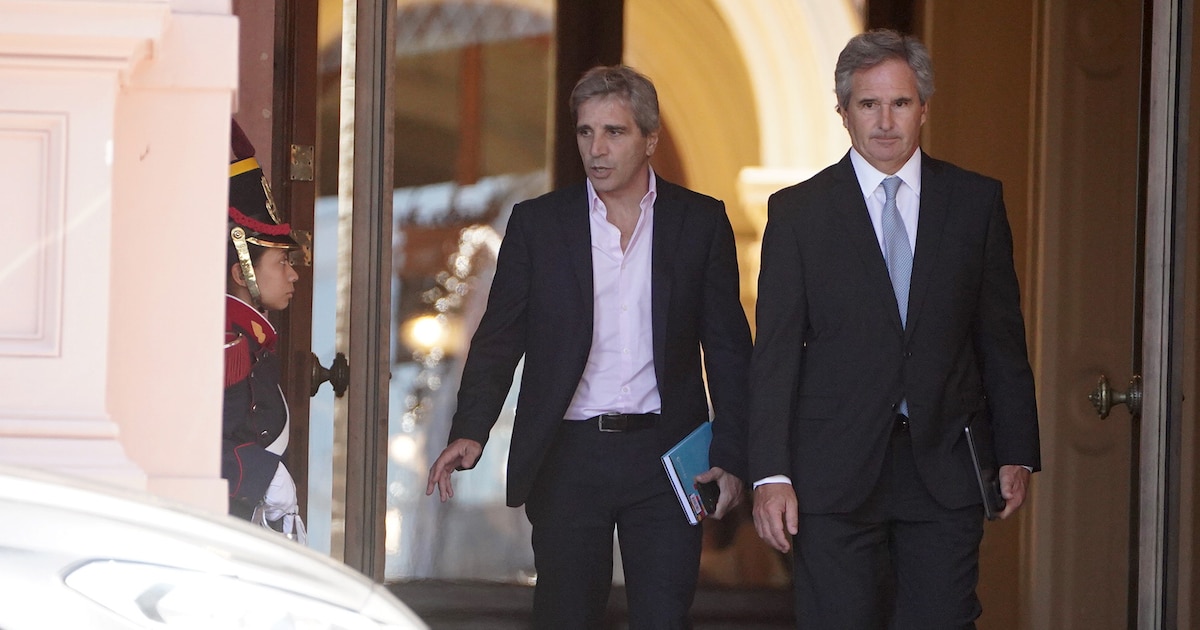The Secretary of Finance, Pablo Quirno, publicly responded to criticisms from former Vice President Cristina Kirchner with a message loaded with questions about her management and accused her of promoting “economic shamanism” that left high levels of inflation and poverty.
In his publication, Quirno directly targeted the former vice president for her comments on public debt and the country’s financial situation. “It’s good that she has time to write while we are correcting the economic atrocities she committed during her direct participation in three national governments,” he wrote. He also recalled “her direct involvement in the events for which she has recently been convicted after more than a decade of proceedings.”
The official lamented Kirchner’s lack of self-criticism. “I regret that she doesn’t use this time to reflect on the tremendous damage she has inflicted on our beloved country,” he stated, accusing Kirchnerism of “establishing an economic shamanism that in its final attempt led to unprecedented and outrageous levels of inflation and poverty.”
Quirno also questioned the capital controls that, according to him, “have made Argentina an undesirable place for investors.” He described this approach as contrary to “a basic principle that those who invest their money should be able to do with it as they please.”
In his response, the Secretary of Finance listed former Economy Ministers from the Kirchner era and described them in harsh terms. He mentioned “Amado Boudou (the architect of expropriations such as the AFJP and Casa de Moneda, in addition to having been convicted of corruption),” “Hernán Lorenzino (who wanted to leave and eventually did),” and “Axel Kicillof who, among other ‘achievements,’ has left us with numerous lawsuits that we have to resolve and defend today, which currently affect residents of Buenos Aires Province with insecurity, poverty, and higher taxes).”
He also referred to “Martín Guzmán (responsible for the worst debt restructuring in history),” “Silvina Batakis (the one who said ‘the right to travel collides with job creation’),” and “Sergio Massa (who took over the ‘bomb,’ designed the Platita plan to win the presidency, and left an economy in shambles on the brink of hyperinflation and with the highest poverty in history).”
Quirno criticized the fiscal and monetary model of Kirchnerism. “Their economic shamanism only increased poverty by financing deficits through debt and monetary issuance, looting the Central Bank of its reserves,” he claimed.
He also pointed out that “debt is always the child of deficit” and blamed Kirchner’s governments for the levels of indebtedness: “Her governments incurred unfundable deficits, making no one but herself responsible for the largest indebtedness in Argentine history (USD 156 billion in the period November 2019-November 2023, and that doesn’t even include the period 2008-2015, which brings her indebtedness to over USD 300 billion).”
The official defended the current course of Javier Milei’s administration. He assured that since taking office, they have corrected “the imbalances generated” by the previous government, achieving “an unprecedented financial surplus in Argentine history.” He added that this result allows “not issuing new debt but refinancing inherited obligations and even reducing debt in absolute and relative terms to GDP.”
He also highlighted the agreement with the IMF. According to Quirno, this allowed “strengthening the BCRA’s balance sheet, whose reserves were taken by the Treasury in exchange for colorful pieces of paper she herself issued, reducing debt in the process as well, just like every debt transaction we have made so far.” He emphasized a “reduction of USD 50 billion in debt from November 2023 to May 2025.”
Quirno rejected accusations of a supposed new debt model. “You will see then that there is no such structural debt model but quite the opposite since we have reduced debt,” he stated. He added, “I think the only model you know is the Louis Vuitton model (which has now been confirmed to be the product of her conviction for fraudulent administration).”
Finally, he defended the Régimen de Incentivo a las Grandes Inversiones (RIGI) as a driver of private development. “The RIGI has more than a dozen investment projects, of which four have already been approved with investments totaling USD 12.3 billion and several more to come,” he indicated. “These projects are entirely carried out by the private sector, both local and foreign, without state intervention,” he concluded, alluding to the difference with “her governments” that, he said, “specialized in (ab)using public works for the pockets of officials.”
Earlier, Chief of Cabinet Guillermo Francos had also responded to the former vice president’s words. In an interview with Radio Mitre, Francos expressed, “Surely in prison she doesn’t receive all the numbers from Argentina. I don’t know where she gets these numbers or who sends them to her. I don’t think that’s the case. There has been a substantial improvement in the economy. There has been an improvement in consumption in Argentina.”
The official highlighted that economic indicators show growth in the country: “When comparing month to month, there is significant growth in the product and the overall economy.”
In a post on her X account, former President Kirchner stated, “Take note, because you have nothing left to adjust. You’re keeping money that belongs to the provinces. Half of Argentina can’t make ends meet and is going into debt to eat, and on top of that, the numbers don’t add up. Not even in dollars.”
The former leader also questioned the outflow of foreign currency from the country. She noted that in May, the non-financial private sector transferred 3.226 billion dollars abroad, a figure she described as a record since 2003 and higher than the monthly average of 2018 and 2019. Adding the data from April, she claimed that in 45 days, 44% of the 12 billion dollars granted by the IMF in April had fled.
